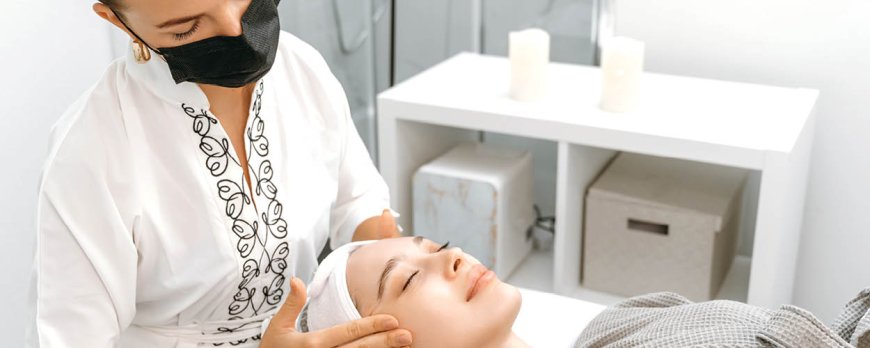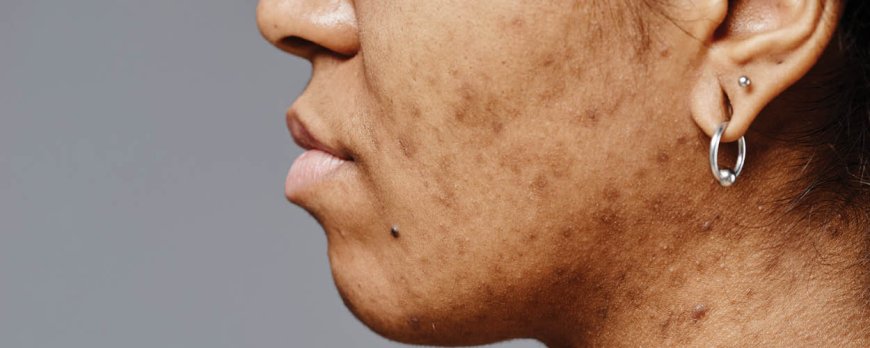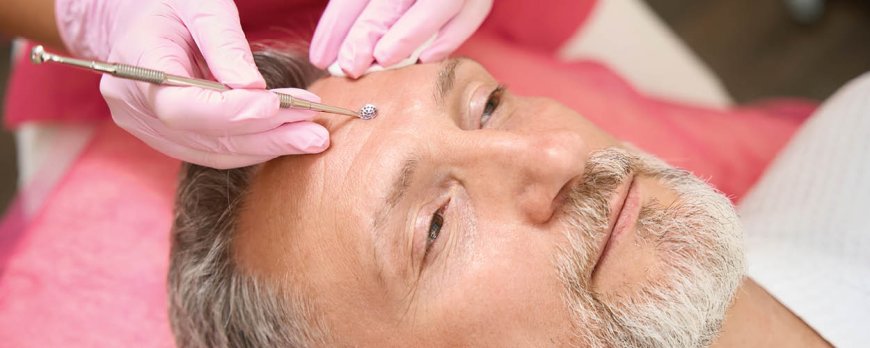What age acne stops?
Discover the answer to 'What age acne stops?' Understand the causes, contributing factors, and how to maintain clear, healthy skin at any age.

What Age Acne Stops?
Acne is a common skin condition that can affect individuals of all ages, but there is no specific age at which it stops. The timeline for when acne goes away varies for each individual, and some may experience acne well into adulthood.
Key Takeaways:
- Acne can occur at any age and there is no set age when it stops.
- Teenage acne, caused by increased oil production, typically resolves itself by the early 20s.
- Adult acne, often caused by hormonal changes and chronic stress, tends to appear around the chin and jawline.
- Treatment options for adult acne include topical tretinoin, oral isotretinoin, spironolactone for hormonal acne, photodynamic therapy, and chemical peels.
- Gentle skincare products should be used to prevent scarring, and picking or popping pimples should be avoided.
Acne in Adolescence
Teenage acne, characterized by increased oil production and hormonal changes, typically clears up on its own by the early 20s. It is a common skin condition that affects many adolescents, often causing discomfort and self-consciousness. During puberty, hormonal fluctuations stimulate the sebaceous glands to produce more oil, which can clog pores and lead to the formation of acne.
Adolescent acne usually manifests as blackheads, whiteheads, pimples, or cysts, and commonly appears on the face, neck, chest, and back. While it can be frustrating for teenagers, it is important to note that most cases of acne in this age group resolve naturally over time. However, the duration and severity of acne can vary among individuals.
It is crucial for teenagers to practice good skincare habits to manage their acne. This includes using gentle cleansers and oil-free moisturizers, as well as avoiding excessive scrubbing or picking at the skin. Additionally, maintaining a healthy diet, managing stress levels, and avoiding certain irritants, such as heavy makeup or tight-fitting clothing, can help in reducing acne breakouts.
Adult Acne
Unlike teenage acne, adult acne is often influenced by hormonal changes and chronic stress, with breakouts commonly appearing around the chin and jawline. It is estimated that 26% of women aged 31-40 and 12% of women aged 41-50 have clinical acne. These hormonal changes can lead to an increase in sebum production, which can clog pores and result in acne formation. Additionally, chronic stress can trigger hormonal imbalances, further exacerbating the development of adult acne.
Treating adult acne requires a multi-faceted approach. There are various treatment options available, including topical tretinoin, oral isotretinoin, spironolactone for hormonal acne, photodynamic therapy, and chemical peels. These treatments work to reduce inflammation, unclog pores, and regulate sebum production. However, it is important to consult with a dermatologist to determine the most suitable treatment option for your specific needs.
Skincare Tips for Adult Acne:
- Use gentle skincare products that are specifically formulated for acne-prone skin. Look for non-comedogenic and oil-free products.
- Avoid picking at or popping pimples, as this can lead to further inflammation and potential scarring.
- Develop a consistent skincare routine that includes cleansing, toning, and moisturizing twice a day.
- Consider incorporating topical treatments, such as benzoyl peroxide or salicylic acid, into your skincare routine to target active breakouts.
- Protect your skin from sun exposure by using a broad-spectrum sunscreen with an SPF of 30 or higher.
While adult acne can be frustrating, it is important to remember that you are not alone. Seeking professional guidance from a dermatologist can help you navigate the best treatment options and skincare routine for your individual needs. With the right approach, adult acne can be effectively managed and minimized, allowing for clear and healthy skin.

Treatment Options for Adult Acne
There are several effective treatment options for adult acne, including topical tretinoin, oral isotretinoin, spironolactone for hormonal acne, photodynamic therapy, and chemical peels. These treatments target various aspects of acne, helping to reduce inflammation, regulate oil production, and promote skin healing.
Topical tretinoin is a common first-line treatment for adult acne. It works by unclogging pores and promoting cell turnover, which helps prevent the formation of new pimples. Oral isotretinoin, on the other hand, is a powerful medication reserved for severe cases of acne that do not respond to other treatments. It reduces oil production and targets the underlying causes of acne.
For adult acne caused by hormonal imbalances, spironolactone is often prescribed. This medication blocks the effects of androgens (male hormones) on the skin, reducing oil production and preventing breakouts. Photodynamic therapy is another option, which combines light therapy with a photosensitizing agent to kill acne-causing bacteria and reduce inflammation. Chemical peels can also be performed to exfoliate the skin, unclog pores, and improve acne-related pigmentation.
At-Home and In-Office Treatments
There are also at-home treatments available for adult acne, such as over-the-counter creams containing benzoyl peroxide or salicylic acid. These can help to reduce inflammation and unclog pores. However, it is important to use gentle skincare products and avoid excessive drying or irritation, as this can worsen acne.
In-office treatments, on the other hand, are performed by dermatologists and offer more targeted and potent solutions. These can include prescription-strength topical medications, chemical peels, microdermabrasion, and laser therapies. Consulting with a dermatologist is crucial to determine the most suitable treatment plan based on an individual's specific skin type and needs.
Customized Treatment Approaches for Better Results
When it comes to managing adult acne, a one-size-fits-all approach is not effective. Treatment options and skincare routines should be tailored to each individual's needs and skin type. A dermatologist can provide personalized guidance, considering factors such as the severity of acne, medical history, and lifestyle. Consistency in skincare and following the prescribed treatment plan are key to achieving long-term improvement.
Skincare Tips for Acne
Using gentle skincare products and avoiding the temptation to pick or pop pimples can help prevent acne breakouts and minimize the risk of scarring. When it comes to choosing skincare products, opt for ones that are specifically formulated for acne-prone skin. Look for labels that say "non-comedogenic" or "oil-free," as these products are less likely to clog pores and contribute to breakouts.
In addition to using gentle products, it's important to establish a consistent skincare routine. Cleanse your face twice a day using a mild cleanser, and follow up with an alcohol-free toner to help remove any remaining impurities. Applying a lightweight, oil-free moisturizer can help keep the skin hydrated without adding extra oil. Don't forget to protect your skin from harmful UV rays by applying a broad-spectrum sunscreen with an SPF of 30 or higher every day.
Avoid Picking and Popping
- Resist the urge to pick at or pop pimples, as this can worsen inflammation and increase the risk of scarring.
- Keep your hands away from your face to minimize the transfer of bacteria and dirt.
- If you absolutely must touch your face, make sure to wash your hands thoroughly beforehand.
Another helpful tip for preventing scarring is to avoid abrasive or harsh scrubbing. Instead, gently cleanse your face using your fingertips or a soft washcloth. Exfoliating once or twice a week with a gentle exfoliant can help remove dead skin cells and unclog pores, but be careful not to overdo it, as excessive exfoliation can irritate the skin.
Remember, everyone's skin is unique, and what works for one person may not work for another. If you're struggling with acne, it's a good idea to consult with a dermatologist who can provide personalized recommendations and guide you toward the most effective treatment options for your specific needs.
Acne Scars: Understanding the Different Types
Acne scars can take different forms, including atrophic scars, which are depressions in the skin, and hypertrophic or raised scars. Atrophic scars are caused by a loss of tissue, resulting in a sunken appearance. These scars can be further categorized into ice pick scars, boxcar scars, and rolling scars, depending on their shape and appearance.
The Different Types of Atrophic Scars:
- Ice pick scars: These are narrow and deep scars that resemble tiny puncture marks on the skin.
- Boxcar scars: Characterized by their broad, rectangular shape, boxcar scars often have sharp edges and can vary in depth.
- Rolling scars: Rolling scars have a wave-like appearance and give the skin a rolling, uneven texture.
On the other hand, hypertrophic or raised scars occur when there is an excess production of collagen during the healing process. These scars appear raised and may be pink or red in color. Unlike atrophic scars, hypertrophic scars can sometimes fade over time, but they may also become more prominent and thickened.
Understanding the different types of acne scars is essential for determining the most suitable treatment approach. It's worth noting that not all scars may respond to the same treatments, and individual factors such as skin type and scar severity should be taken into consideration. To effectively address acne scars, it is recommended to consult with a dermatologist who can provide personalized advice and recommend the most appropriate treatment options.

Treating Acne Scars
Treating acne scars can involve a combination of at-home treatments, such as topical creams and serums, and in-office procedures like laser therapy or chemical peels. However, it's crucial to consult with a dermatologist for personalized advice. They can assess your specific skin condition, determine the severity of your scars, and recommend the most appropriate treatment options.
At-Home Treatments
At-home treatments can be a great starting point for minimizing the appearance of acne scars. Here are some common options:
- Topical creams and ointments: Over-the-counter products containing ingredients like retinol, vitamin C, or hyaluronic acid can help improve skin texture and tone.
- Exfoliation: Regular exfoliation with mild scrubs or chemical exfoliants can help slough off dead skin cells and promote cell turnover, leading to a smoother complexion.
- Scar healing products: There are specialized creams and serums available that target scar healing, containing ingredients like silicone, onion extract, or allantoin.
In-Office Treatments
For more advanced or persistent acne scars, in-office procedures performed by a dermatologist can provide more significant results. Some commonly recommended options include:
- Laser therapy: Laser treatments, such as fractional laser resurfacing or intense pulsed light (IPL) therapy, can help stimulate collagen production and improve the appearance of scars.
- Chemical peels: These peels involve applying a solution to the skin that causes controlled exfoliation, promoting the growth of new skin with a smoother texture.
- Microneedling: This procedure uses tiny needles to create controlled micro-injuries in the skin, triggering the production of collagen and elastin, which can help improve the appearance of scars over time.
Remember, the most effective treatment plan for your acne scars will depend on several factors, including the type and severity of your scars, your skin type and sensitivity, and any underlying skin conditions. It's essential to consult with a dermatologist who can evaluate your unique situation and recommend the most suitable course of action. They can provide professional guidance, monitor your progress, and adjust the treatment plan as needed to ensure the best possible outcome.
Individualized Approach to Acne Treatment
The most effective treatments for acne vary depending on individual needs and skin types, highlighting the importance of a personalized approach to skincare and treatment. It is crucial to understand that what works for one person may not work for another, as everyone's skin is unique.
When it comes to treating acne, there are various options available, but finding the right one requires consideration of factors like skin sensitivity, acne severity, and underlying causes. Consulting with a dermatologist is highly recommended, as they can provide expert guidance and tailor a treatment plan specific to your needs.
Treatment Options
- Topical Tretinoin: This medication helps unclog pores and reduces acne inflammation. It is commonly used for mild to moderate acne and can be combined with other treatments for better results.
- Oral Isotretinoin: This powerful medication is reserved for severe and persistent acne that does not respond to other treatments. Isotretinoin works by reducing oil production and shrinking oil glands. It requires close monitoring and is typically prescribed in higher doses.
- Spironolactone for Hormonal Acne: Hormonal changes can contribute to acne development. Spironolactone, a medication originally used as a diuretic, can help regulate hormone levels and reduce acne breakouts in women.
- Photodynamic Therapy: This treatment involves applying a photosensitizing agent to the skin and then exposing it to a specific light source. It targets the bacteria and oil-producing glands responsible for acne, effectively reducing their activity.
- Chemical Peels: Chemical peels can exfoliate the skin, unclog pores, and reduce the appearance of acne scars. Different types of peels are available, ranging from superficial to deep, and the choice depends on the severity of acne and the desired outcome.
In addition to professional treatments, it is essential to establish a consistent skincare routine tailored to your skin type. Using gentle and non-comedogenic products can help prevent irritation and clogged pores. Avoid harsh scrubs or abrasive cleansers, as they can aggravate acne-prone skin.
Remember, treating acne requires patience, as results may not be immediate. It is crucial to remain consistent with your skincare regimen and follow your dermatologist's guidance throughout the treatment process. By taking an individualized approach and seeking professional advice, you can effectively manage acne and achieve clearer, healthier skin.
Persistent Acne in Adulthood
While acne is commonly associated with adolescence, it can continue to affect some individuals well into adulthood. Studies have shown that a significant percentage of adults still experience acne, with 26% of 40-year-olds and 12% of 50-year-olds reporting clinical acne. For women, the numbers are even higher, with 26% of those aged 31-40 and 12% of those aged 41-50 experiencing acne.
Adult acne is typically attributed to hormonal changes and chronic stress. These factors can lead to increased sebum production, clogged pores, and bacterial growth, resulting in the development of acne. Unlike teenage acne that usually resolves itself by the early 20s, adult acne tends to appear around the chin and jawline.
Managing persistent acne in adulthood requires an individualized approach. Treatment options may include topical tretinoin, oral isotretinoin, spironolactone for hormonal acne, photodynamic therapy, and chemical peels. However, it is crucial to consult with a dermatologist to determine the most suitable treatment for your specific needs and skin type.
In addition to medical intervention, maintaining a consistent skincare routine is essential for managing adult acne. Using gentle skincare products can help prevent further irritation and inflammation. It is also important to avoid picking or popping pimples, as this can lead to scarring. While acne scars do not go away on their own, there are various treatment options available, both at-home and in-office, to minimize their appearance. Consulting with a dermatologist can help determine the most effective approach for treating acne scars.
Long-Term Management of Acne

Managing acne in the long term often involves maintaining a consistent skincare routine and seeking guidance from a dermatologist for ongoing support and advice. Here are some key strategies to consider:
- Stick to a gentle skincare routine: Using gentle, non-comedogenic skincare products can help prevent irritation and clogged pores. Opt for mild cleansers, oil-free moisturizers, and non-abrasive exfoliants.
- Be consistent with topical treatments: If prescribed topical treatments, such as tretinoin, it's important to apply them as directed by your dermatologist. Consistency is key for seeing results and preventing breakouts.
- Consider oral medications: In more severe cases, dermatologists may recommend oral medications like isotretinoin or spironolactone to help manage acne. These medications can have potential side effects, so it's crucial to follow your doctor's instructions and attend regular check-ups.
- Explore in-office treatments: For stubborn acne or scarring, in-office treatments like photodynamic therapy or chemical peels may be recommended. These procedures are performed by professionals and can address specific concerns with targeted approaches.
- Avoid picking or popping pimples: Picking or popping pimples can lead to inflammation and scarring. Instead, resist the urge and allow blemishes to heal naturally. If necessary, consult with a dermatologist for safe extraction techniques.
If you're dealing with acne scars, it's important to know that they don't disappear on their own. Depending on the type of scars, treatment options may include at-home remedies like topical creams or professional treatments such as laser therapy or microdermabrasion. Consult with a dermatologist to determine the most suitable approach for your specific situation.
Remember, everyone's skin is unique, and what works for one person may not work for another. That's why it's crucial to consult with a dermatologist who can provide personalized guidance and treatment options tailored to your individual needs and skin type. With the right long-term management plan and the help of a skincare professional, you can minimize the impact of acne and maintain healthier, clearer skin.
Conclusion
Acne is a skin condition that can affect individuals of any age, and while there is no specific age when it stops, it can be managed and treated with appropriate skincare and professional guidance.
Studies have shown that acne can persist well into adulthood, with 26% of 40-year-olds and 12% of 50-year-olds still experiencing acne. In women, clinical acne is seen in 26% of those aged 31-40 and 12% of those aged 41-50. This highlights the need for continued care and attention to maintain clear and healthy skin throughout life.
The development of acne differs between teenagers and adults. Teenage acne, typically caused by increased oil production, often resolves itself by the early 20s. On the other hand, adult acne is commonly triggered by hormonal changes and chronic stress. It tends to appear around the chin and jawline, requiring a targeted approach for effective treatment.
Thankfully, there are various treatment options available for managing acne in adults. Topical tretinoin, oral isotretinoin, spironolactone for hormonal acne, photodynamic therapy, and chemical peels are among the options that can be discussed with a dermatologist to determine the most suitable course of action.
Prevention is also key in managing acne. It is crucial to use gentle and simple skincare products that do not further irritate the skin. Avoiding picking at or popping pimples is essential to prevent scarring, as acne scars do not fade on their own. Different types of scars, such as atrophic and hypertrophic or raised scars, may require specific treatment approaches, which can be determined through consultation with a dermatologist.
Ultimately, an individualized approach to acne treatment is important. Every person's skin is unique, and various factors, such as skin type and specific needs, should be taken into consideration when developing a skincare routine and choosing treatment options. With the right care, acne can be effectively managed, allowing individuals to achieve clear and healthy skin at any age.
FAQ
What age does acne stop?
Acne can persist into adulthood, and there is no specific age when it stops. The timeline for when acne goes away varies for each individual.
When does teenage acne clear up?
Teenage acne, which is caused by increased oil production, usually resolves itself by the early 20s.
What causes adult acne?
Adult acne is typically caused by hormonal changes and chronic stress. It tends to appear around the chin and jawline.
What are the treatment options for adult acne?
Treatment options for adult acne include topical tretinoin, oral isotretinoin, spironolactone for hormonal acne, photodynamic therapy, and chemical peels.
How can I prevent scarring from acne?
It is important to use gentle and simple skincare products and avoid picking at or popping pimples to prevent scarring. Acne scars do not go away on their own.
What types of acne scars are there?
There are different types of acne scars, such as atrophic scars (indented scars) and hypertrophic or raised scars.
How can acne scars be treated?
Treatment options for acne scars include at-home and in-office treatments, but it is best to consult with a dermatologist to determine the most suitable treatment.
Why is it important to use an individualized approach to acne treatment?
Treatment options and skincare routines should be tailored to individual needs and skin types to achieve the best results.
Can acne persist into adulthood?
Yes, acne can persist into adulthood for some individuals.
How can acne be managed in the long term?
Long-term management of acne involves maintaining a consistent skincare routine and seeking guidance from a dermatologist.


































































































































